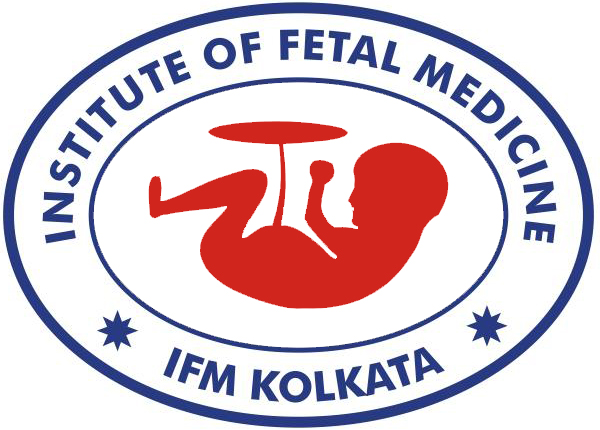As expectant parents, ensuring the health and well-being of your baby is a top priority. Advances in medical technology have made it possible to gain valuable insights into your baby’s genetic makeup even before birth. Fetal Exome Sequencing is a groundbreaking technology in prenatal genetic testing, providing comprehensive analysis. This article explores its significance and process, focusing on the Institute of Fetal Medicine Kolkata.
Understanding Fetal Exome Sequencing:
Fetal Exome Sequencing is a new way doctors use to check a baby’s genes before it’s born. Genes are like a recipe book that tells our bodies how to grow and work. The exome is like the important part of that recipe book – it has all the instructions for making proteins, which are like the workers in our bodies.
During pregnancy, doctors focus on the baby’s exome using this special test. It’s like reading through the key parts of the recipe book to see if everything looks okay. With this fancy technology, doctors can look really closely at the baby’s genes to see if there are any changes or mistakes. These changes might affect how the baby grows or stays healthy.
So, FES is like having super clear glasses to look at the recipe book of a baby’s genes. It helps doctors catch any problems early so they can make sure the baby gets the right care right from the start.
Significance of Fetal Exome Sequencing:
Fetal Exome Sequencing holds immense significance in prenatal care, offering expectant parents invaluable insights into their baby’s genetic health even before birth.
1. Early Detection of Genetic Disorders: Fetal Exome Sequencing enables the early detection of genetic disorders and developmental abnormalities, providing expectant parents with valuable information about their baby’s health before birth.
2. Enhanced Diagnostic Accuracy: Compared to traditional genetic testing methods, Fetal Exome Sequencing offers enhanced diagnostic accuracy by analysing protein-coding regions of the genome, allowing for more precise identification of genetic variants associated with various medical conditions.
3. Personalized Medicine: The genetic information obtained through Fetal Exome Sequencing can inform personalized medical interventions and management strategies for affected fetuses, leading to improved outcomes and tailored care plans.
4. Informed Family Planning: FES results can guide family planning decisions and facilitate informed discussions with genetic counsellors regarding the inheritance pattern, recurrence risks, and available options for future pregnancies.
Process of Fetal Exome Sequencing:
The process of Fetal Exome Sequencing is a sophisticated yet essential step in gaining comprehensive insights into the genetic health of the unborn baby.
1. Sample Collection: In the initial stage of prenatal genetic testing, a meticulous process of sample collection is undertaken. This pivotal step involves the retrieval of a small sample of fetal DNA, which serves as the foundation for subsequent diagnostic analyses. These samples are acquired through either non-invasive or invasive prenatal procedures, each tailored to suit specific medical circumstances and preferences. Non-invasive methods, such as maternal blood tests, offer a gentler approach, avoiding direct contact with the fetus. Invasive procedures like amniocentesis or CVS require a direct approach, extracting fetal genetic material from fluid or tissue. Despite their differences, both avenues ensure the procurement of vital genetic material essential for accurate prenatal assessments and informed decision-making.
2. Genetic Sequencing: After we have the fetal DNA sample, we move on to the next step: genetic sequencing. This is where we take a really close look at the baby’s genetic code. We use a fancy method called high-throughput sequencing, which means we can analyze a lot of DNA really quickly. This method helps us look at all the important parts of the baby’s genetic makeup, known as the exome. By doing this, we can spot any differences or changes in the genes, which are called genetic variants. This thorough analysis gives us a detailed picture of the baby’s genetic health and any potential risks.
3. Data Analysis and Interpretation: Bioinformatics tools are used to analyse the sequencing data and identify genetic variants that may be associated with fetal anomalies or inherited diseases.
4. Genetic Counselling: Following Fetal Exome Sequencing, expectant parents meet with genetic counsellors. These professionals offer extensive support, guidance, and education about the genetic findings, ensuring a comprehensive understanding and informed decision-making process for the parents.
Availability at the Institute of Fetal Medicine Kolkata:
The Institute of Fetal Medicine Kolkata offers premier Fetal Exome Sequencing with state-of-the-art facilities. Led by renowned experts, it provides comprehensive prenatal genetic testing services, including personalized care plans.
Fetal Exome Sequencing is a groundbreaking prenatal test offering early detection and tailored solutions. The Institute of Fetal Medicine Kolkata, a pioneering center, prioritizes holistic care for expectant parents. Providing insights into importance, procedure, and accessibility, prospective parents gain confidence.


